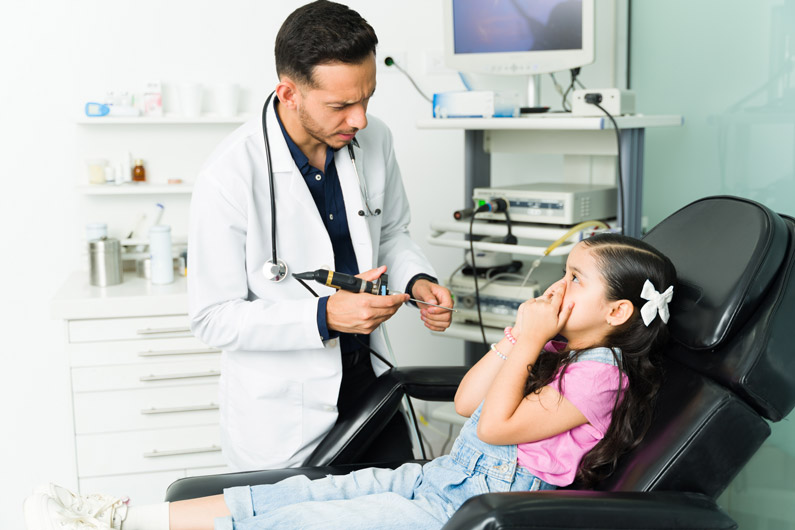Bacterial test for pediatric sinusitis could ease diagnosis and reduce overuse of antibiotics

Among children suspected of having sinusitis, a swabbing for three types of bacteria can determine whether antibiotics are likely to be an effective treatment. The finding were published on July 25, 2023 in JAMA, the Journal of the American Medical Association.
“Five million kids in the U.S. get prescribed antibiotics for sinusitis each year,” said lead author Nader Shaikh, M.D., pediatrician at the University of Pittsburgh Medical Center and professor of pediatrics and clinical and translational science at the university. “Our study suggests that only half of these kids see an improvement in symptoms with antibiotic use, so by identifying who they are, we could greatly reduce unnecessary antibiotic use.”
Between February 2016 and April 2022, the investigators enrolled 515 children aged 2 to 11 who had been diagnosed with acute sinusitis based on clinical criteria.
The researchers took swabs from inside the nose, like a COVID-19 test, from each child and tested them for the three main types of bacteria involved in sinusitis.
The trial was designed to determine whether symptom burden differed in subgroups testing positive for nasopharyngeal Streptococcus pneumoniae, Haemophilus influenzae, or Moraxella catarrhalis on bacterial culture and by the presence of colored nasal discharge.
The subjects received oral amoxicillin (90 mg/kg/d) and clavulanate (6.4 mg/kg/d) (n = 254) or placebo (n = 256) for 10 days.
The primary outcome was symptom burden during the 10 days after diagnosis.
Most of the 510 subjects were aged 2 to 5 years-old (64%).
Using standard testing, the investigators reported that mean 10-day symptom scores were lower among the subjects in the amoxicillin/clavulanate group compared with those in the placebo group
Length of time to symptom resolution was lower for subjects in the antibiotic group (7.0 days) than in the placebo group (9.0 days).
Subjects who tested positive for bacteria achieved a better resolution of symptoms with antibiotic treatment then those who did not have bacteria, suggesting that testing for bacteria might be a simple way to detect children who could benefit from antibiotic treatment and avoid giving antibiotics to children who won’t.
“If antibiotics aren’t necessary, then why use them?” said Shaikh. “These medications can have side effects, such as diarrhea, and alter the microbiome, which we still don’t understand the long-term implications of. Overuse of antibiotics can also encourage antibiotic resistance, which is an important public health threat.”
The authors concluded, “In children with acute sinusitis, antibiotic treatment had minimal benefit for those without nasopharyngeal bacterial pathogens on presentation, and its effects did not depend on the color of nasal discharge. Testing for specific bacteria on presentation may represent a strategy to reduce antibiotic use in this condition.”




